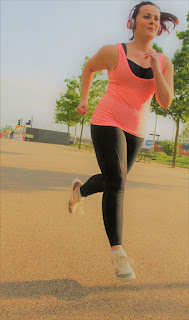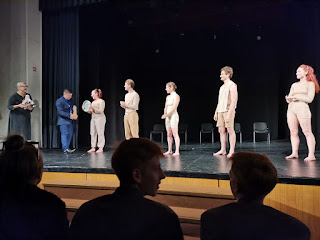The Bechdel Test
During some last minute research I got inspired thinking about female representation and "The Bechdel Test". I'd heard about the test colloquially, but never really applied it in the context of theatre so it was interesting to consider it from that perspective! LOVE this quote from Corrina Antrobus: “We get into a habit of lapping up crumbs and pretending to be fed,” says Corrina Antrobus, the founder of Bechdel Test Fest, the London-based film festival celebrating progressive depictions of women on screen. She explains that a range of factors reinforce the status quo, from the shortage of women directors to the prevalence of male-dominated sets and studios. While measuring these variables would also be useful when trying to determine whether a project is representative or not, she believes the Bechdel Test has endured because it provides the easiest and most accessible starting point. “It carries a lot of weight in its revelations,” she adds. “And in doing so, it eases...



